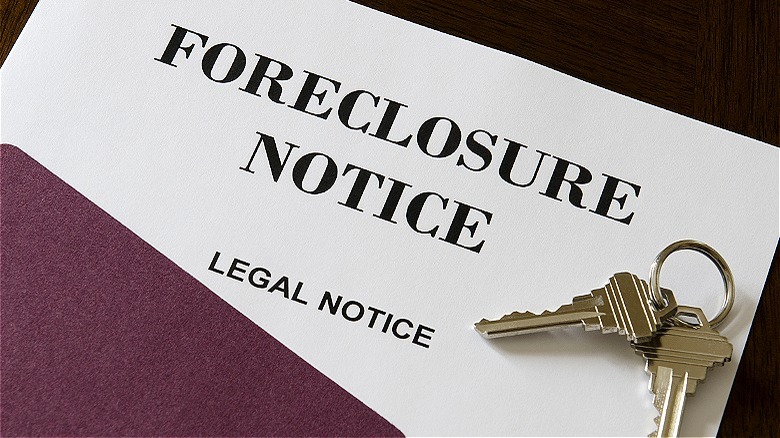You've Been Warned: Avoid These Common Home Equity Loan Scams
Home equity loans and home equity lines of credit (aka HELOCs) are two ways for homeowners to use their home equity as loan collateral, taking money out of their homes to pay for things like home improvements or starting up a business. This said, homeowners should be aware of the existence of mortgage fraud and home equity loan scams, which have been on the rise since the early 2000s.
As early as 2003, The Wall Street Journal reported on a "growing problem" of home equity scams. Some two decades later, the problem has evolved — just as a trend of dipping into one's home equity has reemerged in recent years. Whether it's for home improvements or another purpose, regardless of how a homeowner may wish to take advantage of their home's appreciation in value over the years, know that scammers do as well. And when it comes to home equity loan fraud, not only is money on the line, but a home itself. To guard against such scams, it's important you work only with a trusted bank, credit union, or lender (including online-only).
Some common scams
As said, if you're looking to take out a home equity loan, it's key you work with a trusted lender. An illegitimate lender may not be so easy to spot, however, as they will pose as a legitimate one, only to bait-and-switch a target with suddenly changing loan terms.
Approval will come at lightning speed, and borrowers may go ahead with their renovations with a reasonable repayment plan. Then at signing, scam lenders will jack up the loan's interest rates, while pressuring the borrower to sign. The borrower may still sign because they feel they have no other option, while contractors are already awaiting payment from the loan. What's more, sometimes, the scam may involve lenders in partnership with scam contractors who direct targets to the lenders so both parties can benefit from the scam.
HELOC fraud, meanwhile, is a growing scam area. Scammers utilize identity theft tactics to gain personal information from targets, then use that information to essentially hack into and manipulate HELOC accounts. Since these accounts aren't often monitored closely, scammers can drain funds meant to last 10 years in a matter of days.
Another scam to watch for? Foreclosure relief. Foreclosure relief and equity stripping scams are birds of the same scam feather. Here, scammers will pose as companies offering the ability to save homes from foreclosure with loans. Equity strippers then provide contract documents and pressure the borrower to sign quickly. Really, the borrower is signing over their home to the scammer, who can then refinance the home themselves. Foreclosure relief companies require a large upfront fee to "save" a home from entering foreclosure proceedings, only to disappear once that fee is paid.
Targets, tactics, and prevention
In addition to targeting those wealthy and middle-income folks who have been able to build credit and equity, scammers also target people who aren't tech savvy, seniors, and those facing foreclosure, as well as homeowners with poor credit desperate to tap into their equity, and homeowners usually discriminated against when it comes to being granted loans.
Getting a home equity loan requires paperwork and proof of income, as well as sharing personal information linked to finances and identity, such as bank account and Social Security information. Sharing this sensitive data is an essential part of the legitimate home equity loan process; however, scammers invade that process, posing as legitimate service providers/lenders. Then they mislead their "clients" and steal their identities, loan funds, and properties. Scammers prey on their targets' desperation and lack of familiarity with the legitimate process for securing a home equity loan.
Keys to avoiding heartache and ruin from a home equity loan scam include working with a well- vetted lender. Also, keep in mind there are credit-freeze and credit-monitoring options available to help stop identity theft in the early stages should you be a victim of this scam. Also, remember to get terms of service in writing. And never sign anything that seems oddly "urgent," confusing, or too good to be true, especially if the document is misspelled. (Here are some other money scams to watch for in 2024.)


